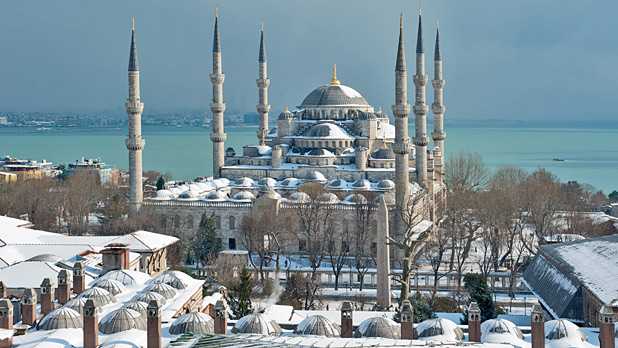By Japan Times, Tokyo
Aug. 5–Turkey’s Constitutional Court ruled last week that the country’s governing party will not be banned for violating the country’s constitution. The outcome is a victory for democracy, as the court decision amounted to a rejection of conservative opposition to the ruling Justice and Development Party and the opposition’s attempts to shape Turkish politics by extra-parliamentary means.
While Turkey is a predominantly Muslim country, the country’s constitution prescribes a secular state. That mandate has empowered a conservative order — backed by the military — that has controlled Turkish politics in the name of secularism.
Having won 47 percent of the popular vote in elections last year — the biggest margin in over 40 years — Prime Minister Recep Tayyip Erdogan, head of the Justice and Development Party (AKP), feels confident enough to press for greater expression of Islamic identity in Turkey. For example, his government has rescinded the ban on women wearing head scarves in university. While this may seem like a minor issue, many fear it is only the first item in an agenda designed to push Turkey toward becoming an Islamic state.
Mr. Erdogan insists he and his party respect the constitution, but critics have their doubts. This spring the chief prosecutor charged the prime minister with harboring an Islamic agenda and demanded that the AKP be banned. The Constitutional Court ruled that the party’s activities were indeed unconstitutional. Six of the 11 judges voted to ban the party, but seven were needed for the ban to be enacted. Another four judges felt that cutting in half the funding the AKP receives from the Treasury — $20 million — would suffice as punishment.
The decision was “a serious warning,” said chief judge Hasim Kilic, to the AKP to “take the necessary lessons.” The loss of financing is not likely to hurt badly since party supporters can make up the lost revenue. The lifting of the threat of a party ban means that Mr. Erdogan can reach out to secularists who oppose conservatives and want to see democracy more deeply entrenched in Turkey. The question now is whether hardliners in the party will see the decision as an opportunity to push harder on their Islamic agenda, alienating moderates and animating conservatives.
The AKP may be on probation, but the decision is also a sign that the country’s judiciary, a pillar of the conservative order, is not prepared to once again overturn the democratic will of the Turkish people. Political parties have been banned in the past, but never one as popular as AKP or one that is in power. While the military has dominated Turkish politics since the founding of the modern state in 1923 — there have been four coups in the last half century — its allies are no longer prepared to give it a blank check.
Mr. Erdogan deserves some of the credit for this new reluctance. His economic policies have been a success. GDP expanded 5 percent in 2007, a slight slowdown from the previous year, but still a respectable showing. Inflation is at a 37-year low and foreign investment last year set a record, topping $22 billion.
The most important development is Mr. Erdogan’s ability to commence membership talks with the European Union. That has been and will continue to be a difficult negotiation as Europe is by no means united on Turkey’s membership. (The chief objection is the fact that it’s a Muslim country; Turkey’s size, argue the critics, would transform the nature of the EU.) But any progress depends on a rigorous and stable democracy. A constitutional coup would strengthen the hands of opponents.
This realization constrains whatever inclinations the AKP might have to push the Islamist agenda further. After the court ruling, EU Enlargement Commissioner Olli Rehn called on Ankara “to resume with full energy its reforms to modernize the country,” forging consensus “through a broad-based dialogue with all sections of Turkish society.” The message could not be clearer.
The constitutional court decision has settled one important question, but tensions and deep divisions remain. Eighty-six people, including several senior military officers, are in jail awaiting trial on charges of involvement with a terrorist group that aimed to overthrow Mr. Erdogan’s government. The group is suspected of having operated with the tacit acceptance of other pillars of the “secular order.”
Although such musings appeal to the conspiracy minded, many believe that the group enjoys good connections with elements of the security forces. Thus the rulings in their cases will be every bit as important as last week’s ruling on the AKP. They will confirm whether laws and democratic processes, rather than an unelected elite, will shape Turkey’s future.
Source: Japan Times, Tokyo, 05.08.2008


Leave a Reply